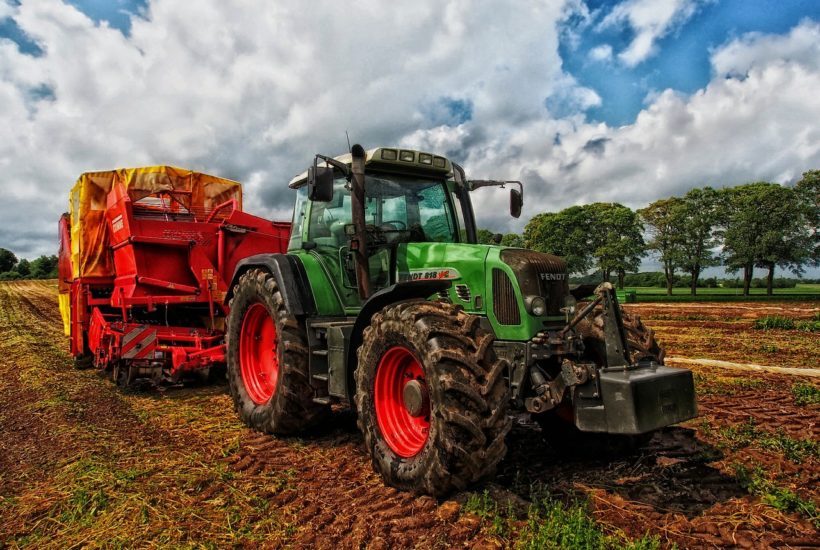Africa
Agricultural Aggregation: New Procedures for Granting Subsidies in Morocco
A new mechanism has been introduced for the ceilings and procedures for granting subsidies to agricultural aggregation projects. In case of approval of the aggregation project, and in order to obtain the corresponding aggregation certificate, the aggregator must complete his file, within a maximum of three months from the date of receipt of the approval decision.

The encouragement of the various categories of farmers to unite within the aggregations goes to a higher level after the finalization of the device relating to the modalities of issuance of agricultural certificates as well as the conditions required to be eligible for state funding.
Indeed, two joint decisions of the Departments of Agriculture and Finance came into force in June, to reframe the legal regime of accreditations and their access to funding. The main novelty consists in the establishment of a lump-sum subsidy to encourage the creation of agricultural aggregations, intended for assistance and technical support of the aggregator for the benefit of the aggregates in order to achieve the objectives set in the project of agricultural aggregation concerned. It is a subsidy at a preferential rate for investments made in the acquisition of agricultural equipment or livestock and for the acquisition of equipment in localized irrigation systems or supplement, as indicated in the new regulation. It should be said that the aid varies according to the extent of the areas with a range that varies between 750 DH/ha for large areas and 2,250 DH/ha for the cultivation of citrus, while for the olive tree, the thresholds set vary between 675 DH/ha for the aggregation of the olive tree around a unit of crushing and 225 DH/ha for the olive preserves
Concerning the projects of agricultural aggregation in the sector of the date palm, the flat rate subsidy is calculated per hectare for the aggregated areas having a density equal or superior to 80 feet/ha. Aid will be granted in proportion to the number of date palms for aggregated areas with a density of less than 80 feet/ha and for date palms located within the oases. The new regulatory framework also provides, for meat aggregation projects around a fattening unit or a slaughterhouse, a scale that varies between 525 DH/head for small livestock and 175 DH/head for large livestock.
Read more on the subject and find the latest economic news in the world with the Born2Invest mobile app.
New project approval procedures
The new subsidy framework will be initiated in parallel with the approval of new approval procedures for aggregation projects. The Regional Directorates of Agriculture, on which the aggregated farms depend, are competent to respond to requests from farmers, and the criterion of the place of residence of the largest number of aggregates will also be taken into account when giving the green light to the constitution of new aggregations. The new regulatory framework also specifies that when the aggregation project is built around a recovery unit, the project file must specify the location of the recovery unit concerned as well as its type, nature and capacity.
It should be noted that a technical committee will have to be set up within all the regional directorates of agriculture. The status of this committee as well as the deadlines for responding to approvals have not yet been defined. The two joint decisions issued by the Departments of Agriculture and Finance refer to another regulatory text that sets out the composition of the technical committees responsible for deciding on the files for the establishment of approvals and the deadlines for responding to each type of approval.
Vital conditions for creation projects
The new regulations insist on a careful examination of the documents that make up the file accompanying the application for creation. The technical committee must first verify that the agricultural aggregation project meets the minimum number of aggregates set by the joint decree, as well as check that the adequacy of the area of the farms belonging to the aggregator and the number of its livestock comply with the thresholds set by the supervisory department.
In case of approval of the aggregation project, and in order to obtain the corresponding aggregation certificate, the aggregator must complete his file, within a maximum of three months from the date of receipt of the approval decision.
Finally, and in addition to finalizing a definitive list of aggregates, signed by the aggregator, the State requires that aggregators deliver a copy of each agricultural aggregation contract established with the aggregates as well as the definitive aggregation project form validated by the president of the technical committee in charge of examining the request.
__
(Featured image by 12019 via Pixabay)
DISCLAIMER: This article was written by a third party contributor and does not reflect the opinion of Born2Invest, its management, staff or its associates. Please review our disclaimer for more information.
This article may include forward-looking statements. These forward-looking statements generally are identified by the words “believe,” “project,” “estimate,” “become,” “plan,” “will,” and similar expressions. These forward-looking statements involve known and unknown risks as well as uncertainties, including those discussed in the following cautionary statements and elsewhere in this article and on this site. Although the Company may believe that its expectations are based on reasonable assumptions, the actual results that the Company may achieve may differ materially from any forward-looking statements, which reflect the opinions of the management of the Company only as of the date hereof. Additionally, please make sure to read these important disclosures.
First published in LesEco.ma, a third-party contributor translated and adapted the article from the original. In case of discrepancy, the original will prevail.
Although we made reasonable efforts to provide accurate translations, some parts may be incorrect. Born2Invest assumes no responsibility for errors, omissions or ambiguities in the translations provided on this website. Any person or entity relying on translated content does so at their own risk. Born2Invest is not responsible for losses caused by such reliance on the accuracy or reliability of translated information. If you wish to report an error or inaccuracy in the translation, we encourage you to contact us.

-

 Markets5 days ago
Markets5 days agoCotton Market Weakens Amid Demand Concerns and Bearish Trends
-

 Crypto2 weeks ago
Crypto2 weeks agoIs Strategy’s Bitcoin Bet Becoming a Dangerous House of Cards?
-

 Fintech3 days ago
Fintech3 days agoFintech Alliances and AI Expand Small-Business Lending Worldwide
-

 Crowdfunding1 week ago
Crowdfunding1 week agoSpain’s Real Estate Crowdfunding Boom: Opportunity, Access, and Hidden Risks














